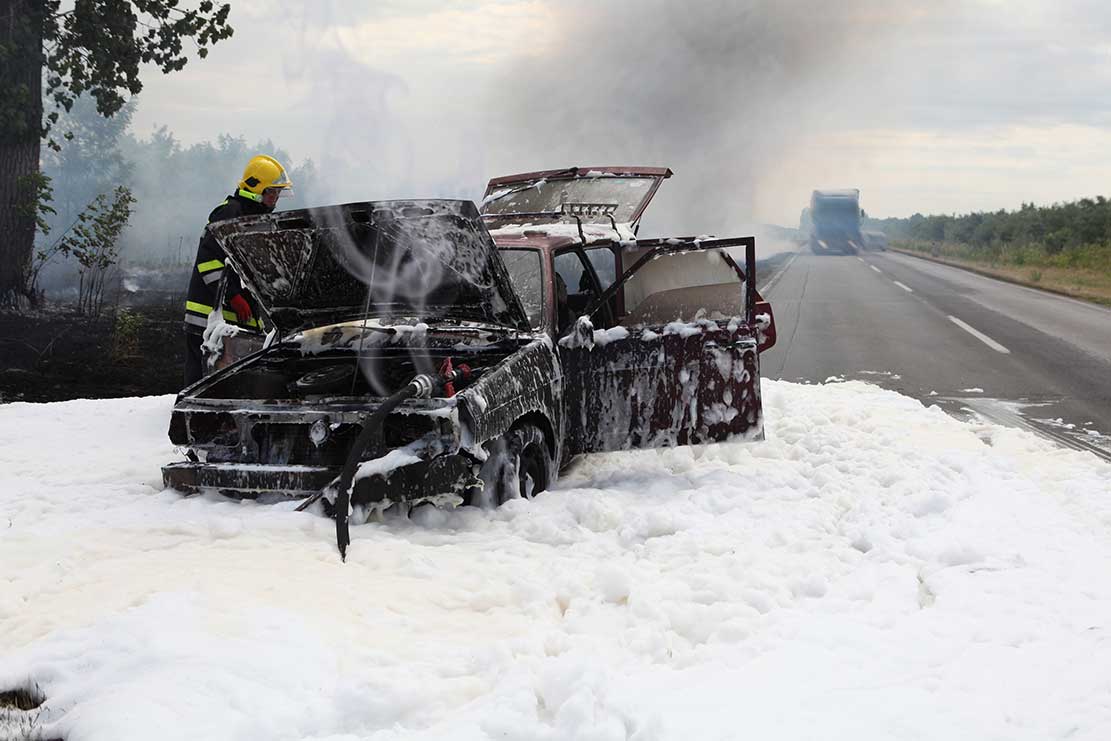
Firefighting and military personnel afflicted with various cancers through exposure to AFFF firefighting foam are urged to request a free, private case review to seek justice and compensation
Firefighting and military personnel afflicted with various cancers through exposure to AFFF firefighting foam are urged to request a free, private case review to seek justice and compensation
The dangerous cancers potentially caused by unsafe AFFF fire fighting foam products may include:
- Colon
- Prostate
- Leukemia
- Kidney
- Pancreatic
- And many more…
There is limited time remaining to file a legal claim. ACT NOW!
FREE CLAIM REVIEW
By clicking the "SUBMIT" button, I consent to receive recurring auto dialed and/or pre-recorded telemarketing calls and/or text messages from Shield Legal LP or our partners in order to discuss my legal options and at the telephone number I provided. I also consent to the Shield Legal LP Privacy Policy and Terms of Use. I understand that I may receive a call even if my telephone number is listed on a Do Not Call list and that my consent is not a requirement of purchase. I understand that my telephone company may impose charges on me for these contacts and that I can revoke this consent at any time. For SMS campaigns: Text STOP to cancel and HELP for help. Msg & data rates may apply. Recurring msgs up to 27 msgs per month.
100% confidential Case Evaluations
Answer a few basic questions to get started
Receive a confidential case evaluation
Have an individual claim filed for compensation
A quick summary of the facts behind Aqueous Film Forming Foam (AFFF) and Cancers
AFFF’s ability to extinguish hydrocarbon fires effectively and efficiently has led to its widespread use anywhere liquid and gas-based fires occur.
AFFF has been widely used at a variety of facilities for both training and emergency response purposes, including airports, military bases, firefighting training facilities, oil and gas refineries, as well as petroleum and chemical bulk storage facilities.
The Aqueous Film Forming Foam (AFFF) and Per- and Polyfluoroalkyl Substances (PFAS) Connection
In the past 20 years, numerous studies have linked the use of AFFF to the release of Per- and Polyfluoroalkyl Substances (PFAS) in the environment.
PFAS in AFFF are toxic and carcinogenic to humans, according to the International Agency for Research on Cancer (IARC).
The use of AFFF has released PFAS into the environment in response to emergency situations in mass quantities and in an uncontrolled manner.
Due to its ability to persist in the environment, PFAS can travel long distances in groundwater without breaking down–this can lead to the contamination of drinking water supplies.
How PFAS from AFFFs Enter the Human Body
Environmental investigations at military bases, airports, and firefighting training facilities have indicated the use of PFAS at these sites and have impacted nearby drinking water supplies.
In addition, firefighters and other individuals using AFFF in training and emergency scenarios are vulnerable to PFAS exposure through direct contact, inhalation, and ingestion of the foam during application.
Health studies have found elevated concentrations of PFAS in the blood of firefighters and elevated rates of cancer among those more highly exposed to AFFF.
Aqueous Film Forming Foam (AFFF) Manufacturers and Product Names
3M – Lightwater (Manufactured only PFOS-based foam. Completed a voluntary phase-out in 2002 in agreement with EPA.)
National Foam, Inc./ Kidde-Fenwal – Aer-O-Lite, Aer-O-Water, Centurion, Universal (Began producing fluorinated foams as early as 1965. Continues to manufacture AFFF and other fluorinated foams. Now a subsidiary of Kidde-Fenwal, a subsidiary of Carrier.)
Chemguard – Chemguard (Continues to manufacture AFFF and other fluorinated foams.)
Ansul/Tyco – Ansulite (Continues to manufacture AFFF and other fluorinated foams. Now a subsidiary of Tyco.)
Chemours – FM-200 (Continues to manufacture AFFF and other fluorinated foams. Former subsidiary of DuPont. Now a subsidiary of Kidde-Fenwal.)
Buckeye Fire Equipment – Platinum (Legacy AFFF) (Continues to manufacture AFFF and other fluorinated foams.)
AFFF is known to cause the following types of cancers & conditions
Bladder cancer - Bladder cancer starts when cells that make up the urinary bladder start to grow out of control.
Breast cancer - Symptoms of breast cancer include a lump in the breast, bloody discharge from the nipple, and changes in the shape or texture of the nipple or breast.
Kidney cancer - Also called renal cancer, kidney cancer is a disease in which kidney cells become malignant (cancerous) and grow out of control, forming a tumor.
Liver cancer - Symptoms are uncommon in the early stages of liver cancer. Later, symptoms may include weight loss, belly pain, vomiting, and yellowed skin.
Prostate cancer - Prostate cancer begins when cells in the prostate gland start to grow out of control. The prostate is a gland found only in males.
Testicular cancer - Testicular cancer is the most common cancer in American males between the ages of 15 and 35.
Thyroid cancer - Thyroid cancer occurs in the cells of the thyroid, a butterfly-shaped gland located at the base of your neck.
Ulcerative colitis - Ulcerative colitis (UC) is an inflammatory bowel disease. It causes irritation, inflammation, and ulcers in the lining of your large intestine.

AFFF in the News
2021
There were more than 950 pending claims in multidistrict litigation in South Carolina federal court under MDL-2873 IN RE: Aqueous Film-Forming Foams Products Liability Litigation.
2021
Thyroid and prostate cancer in Georgia firefighters linked to potentially dangerous chemical used on the job
